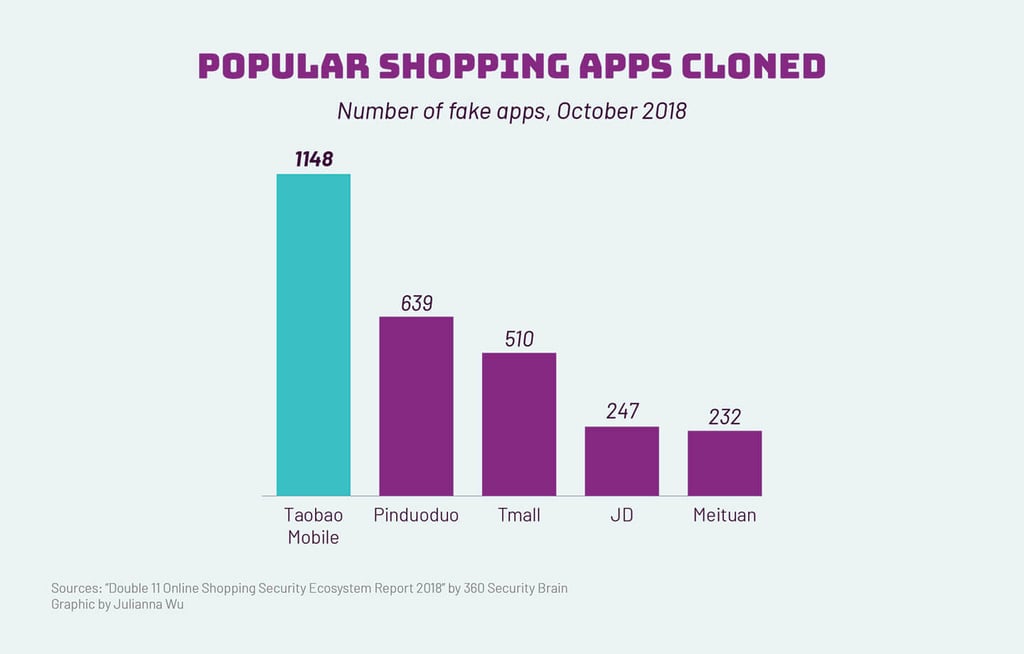Forget fake goods, fake shopping apps plagued China’s Singles’ Day
China’s annual shopping festival is bigger than Black Friday and Cyber Monday combined

Most of us know that feeling when we buy something online that looks like the real thing… but ends up being, well, garbage. But a new report says thousands of people have been using fake shopping apps to make purchases -- and the results could be far worse than merely not getting what you wanted.
Singles’ Day, the shopping event that makes Black Friday look like a yard sale
Much like the fake Gucci and Armani goods, fake versions of popular online stores including Taobao, Pinduoduo, and JD have become common across China. The fake Taobao app, for example, was installed on more than 170,000 phones, according to the Double 11 Online Shopping Security Ecosystem Report 2018.
(Abacus is a unit of the South China Morning Post, which is owned by Alibaba -- which also owns Taobao.)

Counterfeit shopping apps, as the name implies, are apps that impersonate well-known software. They either have the same interface as the original app or use the same name.
Their origin is usually unknown, but the danger is the same as with phishing websites. They can steal account passwords, bank information, spread viruses or simply cheat users out of their money.